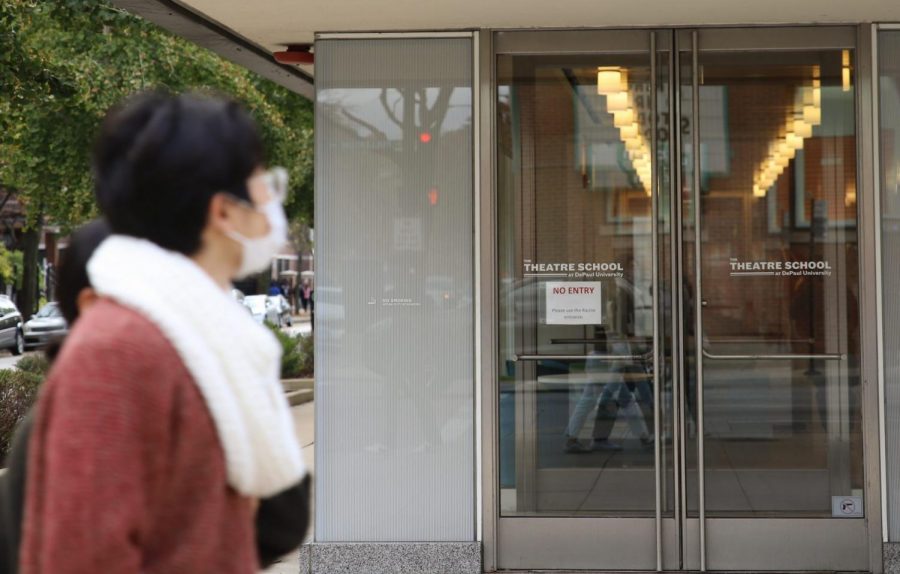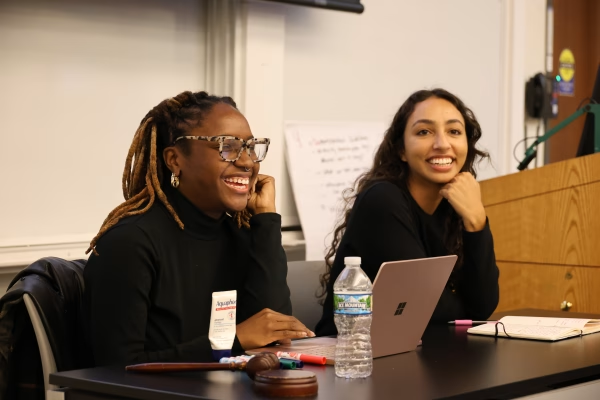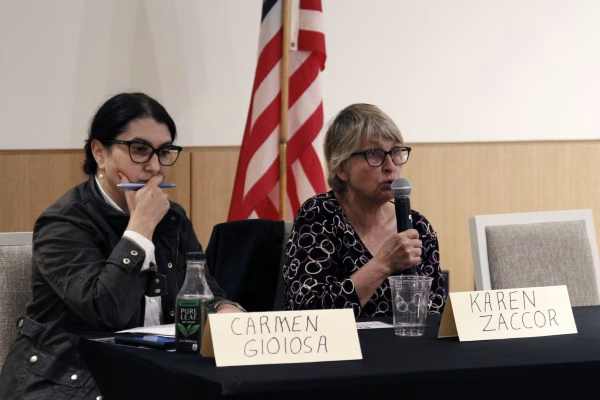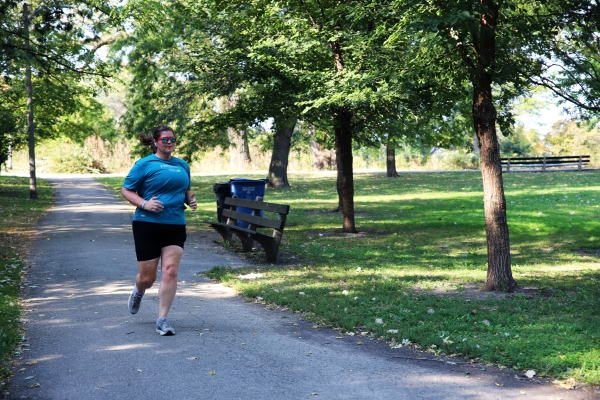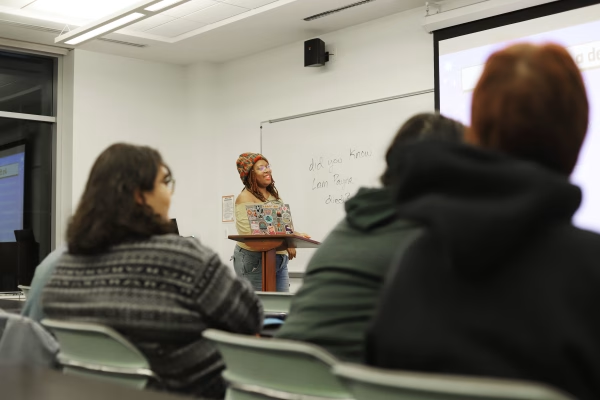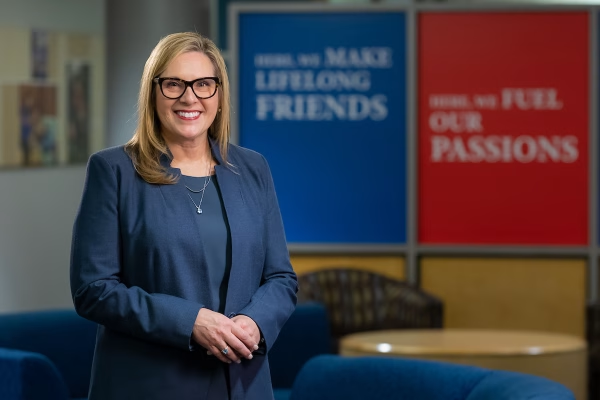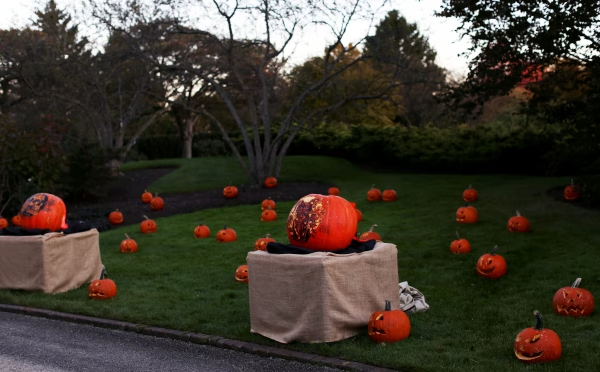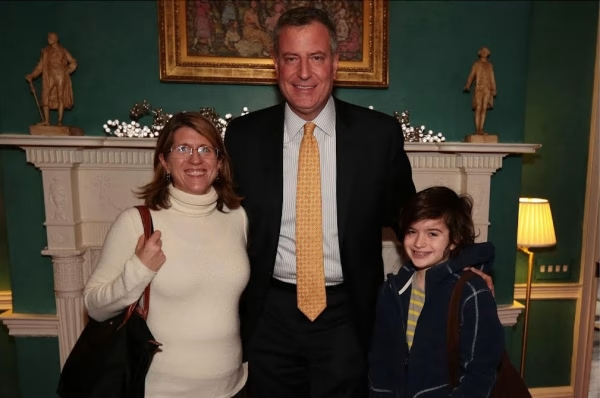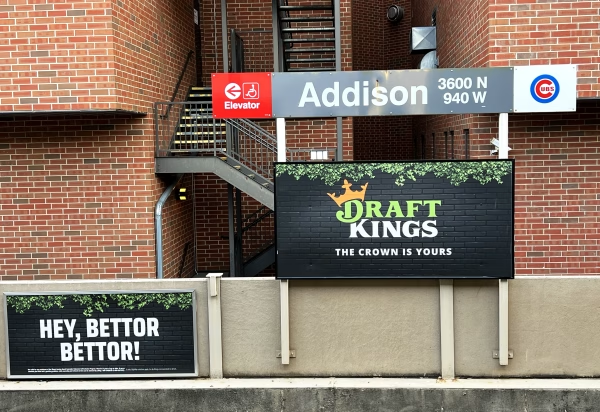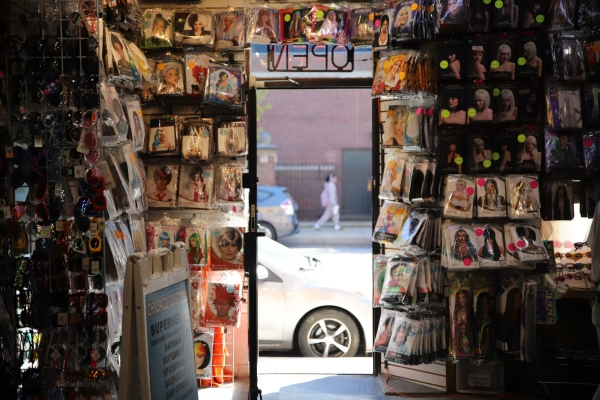Theatre School anti-racism efforts one year later
A student walks past the Theatre School at 2350 N Racine Avenue.
student walksThe Theatre School (TTS) has made curriculum changes, added anti-racist training and created a diversity committee since publishing their commitment anti-racist statement in June 2020.
Prior to the curriculum change, TTS faculty and staff in the wig and makeup department did not have “immediate experience and cultural competency with a range of hair textures,” according to interim dean Coya Brownrigg. This forced students of color to fill the gap and learn themselves.
“That’s something that is not acceptable,” Brownrigg said.
TTS then hired a new hair and makeup faculty member who was trained in styling all hair types and textures
“The new wig and makeup majors have done a really great job … of educating on different hair types and making sure that we know how to communicate effectively about just certain things that we necessarily wouldn’t have necessarily been equipped with prior to kind of a change in the curriculum,” said fourth-year costume design student Finnegan Chu.
Changing curriculum is one of the goals outlined in the original statement. After a year, TTS is looking to revise language in the statement to reflect current language and events.
“We’re in the process of re-looking at the statement now as a way of saying, ‘Does this language still work? Does this language still feel complete? What’s missing from the language?’” said TTS diversity advisor Dexter Zollicoffer.
As time goes on, TTS admin hopes to update the statement to reflect current events and the language.
“We think of it as an evolving document — it wasn’t written once,” Zollicoffer said. “We’ll keep updating it as language and as the times change, that is the goal.”
TTS was one of the many colleges at DePaul that responded to national racial justice movements in 2020. Brownrigg said that very few schools did not release a statement.
Beyond the lack of accommodation in hair and makeup, some students of color feel that systemic racism affects academic policies, casting and show selection in TTS.
“White supremacy is rooted in the training, and these unrealistic expectations on the students in these predominantly European acting methods,” said third-year performance student Esho Rasho.
“It also manifests in the plays that are chosen, but I think that I think that’s an easy spot for our school for change,” Rasho added.
TTS has made efforts to involve students in important decisions, such as show selection.
“They really want students from a bunch of diverse backgrounds to help with choosing the shows for the upcoming years,” Chu said.
According to Brownrigg, students are directly involved in the show selection process.
“We want to make sure that people have a voice in the decision making of our season selection committee,” she said. “[The season selection committee] decides what shows we’re going to put on and that expects every student at the school like what their experience is going to be working on, that is pretty much 50-50 students and faculty and staff.”
However, students do not feel that they have much power to make these decisions and do expect more long-term changes.
“[TTS has] done a really thorough job of making sure to reach out to students and get them involved in the show selection process,” Chu said. “The issue lies within these students [who are] voicing their opinions and things are still not being done. So it just feels more performative … ultimately, someone else is still making the decision.”
Zollicoffer said that it’s important to have conversations regarding the shows and “who benefits from this particular play and whose point of view is being told and who served.”
In the past year, students have strived for long-term change in TTS, including fostering unity. TTS has three departments: Theatre Studies, Performing Arts and Theatre Technology.
“There’s like other micro-movements throughout the school, but the school as a whole, I don’t think there’s unity,” Rasho said. “I just don’t think there’s enough unity to truly come into that statement, as school overall.”
TTS undergraduate and graduate enrollment increased by 10.2 percent between the 2020 and 2021 school years.
Chu said immediate action was taken after publishing the statement, yet they have not seen “continued action taken now that we are back in person.”
During the 2020-2021 school year, TTS canceled classes several times to talk about racism in the community.
“We did something that’s very uncommon at The Theatre School,” Zollicoffer said. “We had about three times throughout one quarter where we canceled classes for the entire school, and really sort of mandated that everyone in the school have faculty and staff sort of engage in these sorts of conversations.”
Brownrigg emphasized that this helps white students learn how they play a role in structural racism.
“I have had white students say, ‘Well, what does this have to do with me?’ she said. “But white people are part of systemic racism in this country.”
The school’s anti-racism statement mentioned “setting up a facilitated forum wherein we commit to bearing witness to past harms for members of our community who would like to participate” and “creating a webpage on The Theatre School website to share progress and foster transparency.”
However, students of color do not have a space yet to voice their experiences without being judged.
“[Student concerns] always gets voiced in either some kind of schoolwide town hall or gets voiced in departmental meetings, but otherwise, there’s not really a space for any students of color to voice their grievances at all,” Chu said.
Rasho said he feels comfortable talking with individual faculty and staff members, but that TTS needs to create a space for students to voice concerns.
TTS is searching for a new dean, and Chu said how students should be involved in the selection process.
“I think just for students to even just meet the people in person to begin with before, you know, someone gets placed as the leader of our school,” they said. “If someone is coming in with the intention of making actual change … what that means to them and how that relates to the students who are talking to them.”
Chu said they have noticed that TTS has taken action and “gone out of their way to attempt to make change.”
In order to create the long-term meaningful change, Brownrigg said “that [it] just takes time.”


